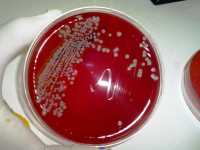Author Interviews, Microbiome, Nature, Weight Research / 21.12.2020
Novel Bacteria May Mitigate Effects of Obesity
MedicalResearch.com Interview with:
Harriët Schellekens MSc PhD
Lecturer
Department of Anatomy & Neuroscience,
and APC Microbiome Ireland SFI Research Centre
University College Cork, Cork, IRELAND.
MedicalResearch.com: What is the background for this study?
Response: There has been an increased emphasis on gut microbiota-targeted therapeutics for the amelioration of obesity. Recent studies have identified several probiotic strains with different anti-obesity effects, including members of the genus Bifidobacterium, but the exact mechanisms of action are still lacking.
Moreover, positive effects in animal studies often do not translate in human studies.
The APC Microbiome Ireland has set up a “culture-to-product” platform, a well catalogued and quality controlled collection of bacteria with potential biofunctional activities. In my laboratory, I have developed a state-of the art “bug-to-drug” screening approach, using high-throughput biochemical and cellular assays, to fully characterize bacteria and identify the most promising bacterial strains with specific desirable probiotic and functional properties. This careful in vitro screening of APC’s strains (or customer strains) is designed to identify the most potent candidates that can impact on host physiology and overall gut-brain axis function, e.g. by producing microbial metabolites or neuroactives, altering gut-barrier function, reducing inflammation, or modifying G-protein coupled receptors. This comprehensive screening approach facilitates the precise selection and prediction of the best strains that are likely to yield a specific positive health effects in subsequent animal and human studies, based on their in vitro probiotic and functional properties. (more…)














